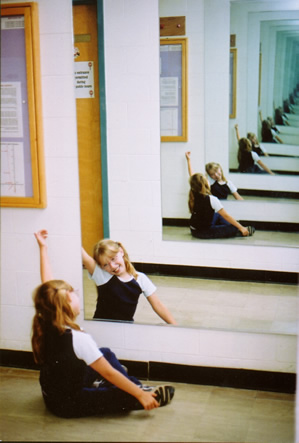According to my calculations, we’ve completed about 72 school days. We’re almost half way through the year.
It doesn’t seem possible, but by the end of January, we’ll be in the second half of the year and THAT’s gonna go soooo fast….you won’t believe it.
Where are you now? Are you on track to meet your goals this year?
If you’re on track, that’s great! Just keep doing what you’re doing.
If you’re not on track, the good news is, there’s still lots of time to get extra help and get your grades where you want them to be.
If you didn’t establish any goals, there’s still time to do so.
I figure, if you don’t have a goal, you don’t have a direction. Without a direction, you tend to drift and let circumstances guide your life. It’s a very passive way of being and leaves you open to going in directions that you do not choose.
For me, it’s better to put a stake in the future and figure out how I’m going to get there. I like to establish milestones - little goals along the way. Keeping my eye on that goal helps me avoid getting bumped off track and, more importantly, if I do end up off track, I can see how to adjust my path to get to the goal.
Maybe your goal is to go to the vocational high school, or the LHS Latin Lyceum. If you don’t already know what it will take to get there, you should make an appointment with guidance and find out.
Having a goal provides structure and direction to your life. That may sound boring or too grown-up for you, but having a goal doesn’t mean you can’t be a kid and have goofy fun, it just helps you get to the next step you want to take. It puts the control in your hands.
So, where are you? Are you on track? Need help setting goals? Need help getting back on track? Talk to your teachers. We’ve all done it and helped others. We can help you, too!










